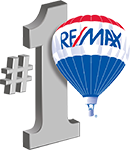
Well, you didn’t know it, but you’ve been preparing for it for the past few weeks…a first time homebuying quiz!
If you’ve been keeping up with my FAQs, you’ll know there are a lot of questions to be answered when considering buying your first home. What you may not have realized, though, is how much you’ve actually learned about the process just by asking those basic questions! You actually know a lot about first time homebuying now, I’m willing to bet…if you’re willing too, why don’t you put your skills to the test by taking the quiz!
This quiz is a great little benchmark test to see if you’re confident enough in your knowledge to begin the process of buying your first home, and at teasing out what areas you’re still uncertain about in order to get the help you need.
If you want to brush up on your first time homebuying FAQ topics before you take the quiz, check out my blog posts on mortgages, qualifying, budgeting, knowing when it’s time, and what type of house to buy.
Now, of course, you can always skip the quiz and just call or email me to set up a meeting – together we can determine whether you’re ready to buy a home in the Main Line area, or, if you’ve already decided, I can help you get started! But hey, quizzes are fun, and there’s no harm giving this one a go!
First Time Homebuying Quiz
[wp_quiz id=”6284″]



